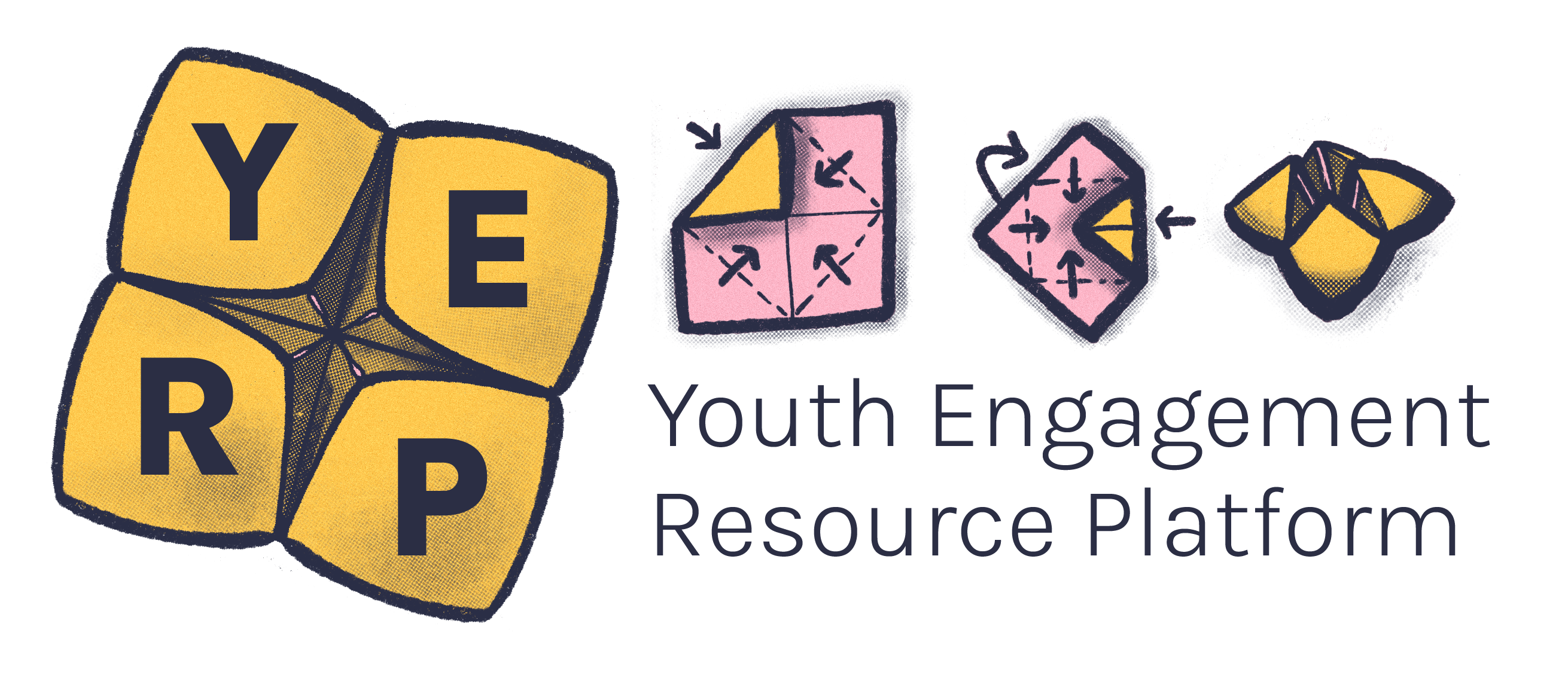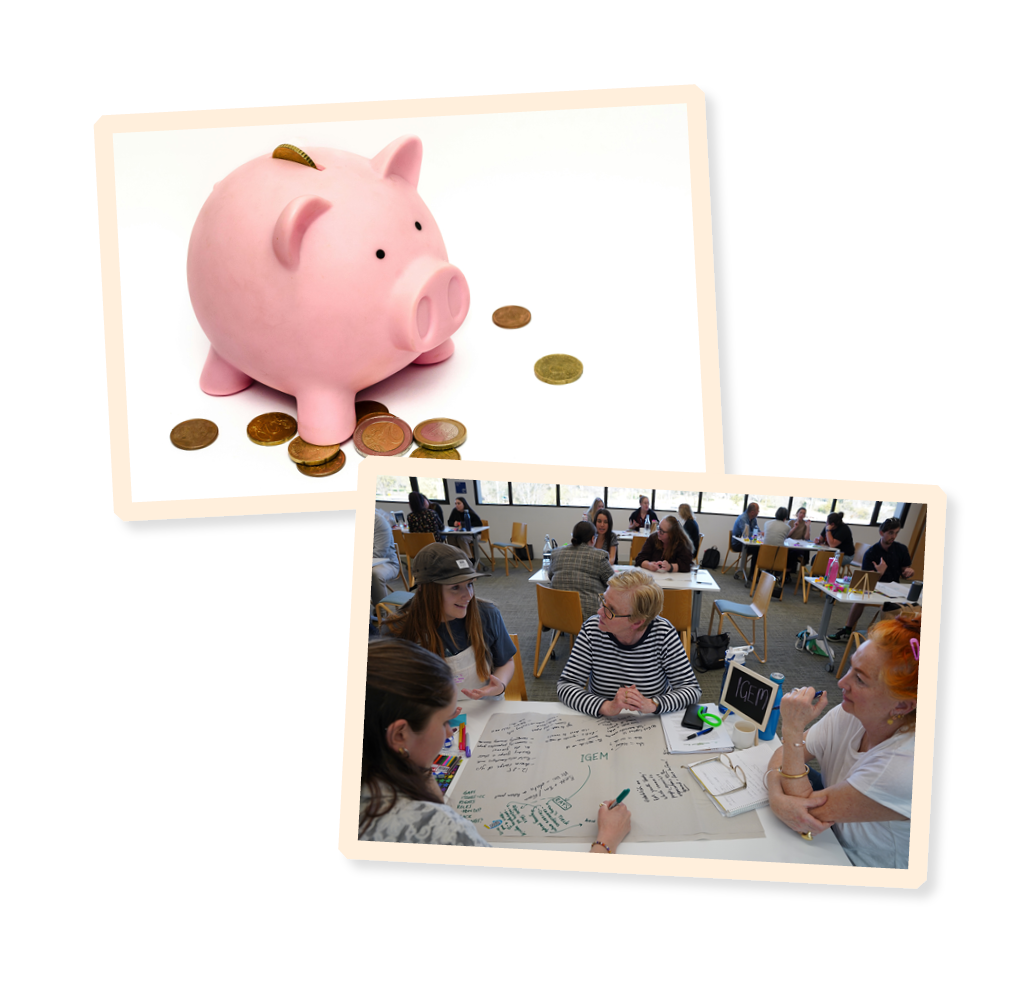You’ve seen a need in your community, or maybe you’ve been hit by an awesome idea that you just know you need to make happen.
You’ve done the work and the planning, but now you need the funds.
Where do you look? What do you do? Let’s get into it!
Okay, so you have your idea. Now you need to fund it.
First, there are a few things to consider. Like, how much do you need?
And what's your demographic? Like, is it for young people in rural Victoria? Or another demographic or community?
Oh. So you should also consider what demographics you could be a part of.
Yeah. And what's your cause?
So once you've considered all of this, it'll be easier to find what funding is best for your project.
Now, let's talk about grants.
Grants are one great option for funding with a lot of different pathways and possibilities.
A grant is a sum of money given by an organization with a specific intention for its use.
Unfortunately, grants aren't always available.
Some are one off opportunities, while others are annual or biannually open.
This is dependent on who is providing the grant.
Here we have put together a list of where to look first.
YACVic is the peak body for the youth sector.
That means they are the go to organization for all things youth related.
Sometimes peak bodies like YACVic will provide funding for young people, but they can also give you information on where to find more money.
So make sure you know the peak body that covers your budget.
The Victorian state government offers grants to support responsibilities such as education, environment and community services.
Funding is passed down to local councils who provide grants to make change in your local area.
Google your suburb to find out which local council you belong to.
Did you know institutions like universities and student unions might help fund your project?
They may not fund your entire project, but could fund resources and let you use their location.
That reminds me how similar to grants, sponsorship funding is often reserved for people in specific demographics or for projects that target specific demographic.
Yeah. Always check your eligibility.
How about some other options?
Yeah, so if your project is intended to help people, then people might help fund it.
That's true.
And if you're researching crowdfunding initiatives, there's lots of options out there.
Speaking of people funding your projects like scholarships, sponsorships are another great option to fund your idea and make it a reality.
Oh yeah, sponsorships can come from an individual, a group, or an organisation.
So really, anybody who believes in your cause can become a sponsor.
They can even be mentors or general support people.
Does that involve networking?
You can find more information on how to network on YERP’s networking page.
Okay. Is that it?
I think we have one last person to hear from.
Now that you know where to go, have you considered if there are things you need that aren't money?
Like locations, people or physical resources.
And be super clear too.
People and organisations need you to know what your project is and what you want from them.
Maybe put this in a plan.
Clearly write it out.
Now you're ready to start finding funds.
The first question to consider is whether the project you’re working on actually needs funding.
If you’re working on an initial pilot program that you have been able to secure the resources for already, it might be best to save your efforts to secure funding until later in the project’s life.
Additionally, seeking funding too early could be harmful – you may put out an idea of your project that doesn’t accurately represent what it could come to be later in its life.
Lots can change throughout the life of a project, so don’t apply for funding or make any promises until you’re sure it’s ready and you’re clear on what you want to achieve.
Consider how much you need and why. This will involve mapping out your potential costs which can be a scary but exciting aspect of your project or event.
Consider the following:
-
Is your project still in early stages where people are happy to volunteer, and you can solely fund infrastructure costs?
-
Are you looking to expand an existing idea, and now you need to consider staffing costs?
-
What are some potential risks and will they impact your costs?
-
What are your Overhead costs are the things you need to operate a business. Examples of overhead costs include rent, utilities, insurance, legal fees, office supplies, advertising, payroll, and accounting feesoverheadand admin costs?
How much funding you need will dictate how you begin your search. A smaller project might mean you’re able to focus on only one grant application, but if you need a large amount of funding you might need to get creative with your proposals.
Grants
Grants are a sum of money given by an organisation with a specific intention for its use.
A good place to start are community grants from your local council or state government. Search your local council area’s website for community grants and you’ll likely see a long list.
Many of these grants are dependent on funding availability, so there may not be enough, or might not be suitable for your needs so keep this in mind!
Similarly, state and territory governments often have grants available for individuals and businesses. You can also search their websites for grant opportunities.
Finally, the federal government also has grants available for people to apply for through Grant Connect.
Youth organisations
Another great place to find funds as a young person is through youth focused organisations!
Often these organisations have grant opportunities available throughout the year. For example, YACVic’s HEY grants program.
If you can’t see anything listed, don’t be afraid to ask! These peak bodies are here to support you, so make use of them and reach out about possible opportunities.
Education institutions
Other places to look include your school, TAFE or university.
Your university, or a student group, club or student union on campus may offer scholarships or grants that you can apply for and utilise for your project.
If they can’t fund your project, they may let you use their spaces which can come in handy.
Get in contact with these groups and they should be able to point you in the right direction on how best to utilise what they offer.
Fundraising
Fundraising is the process of seeking and gathering voluntary financial contributions from individuals, businesses, charitable foundations, or governmental agencies.
Think about fundraising events you may have been to:
-
Raffles to raise money for your local netball or football club
-
Community performances
-
Game nights with a door entry fee
These are only some of the many ways to fundraise.
Sponsorships
Sponsoring something is the act of supporting an event, activity, person, or organisation financially or through providing products or services.
Anyone who believes in your cause, event, program or idea can become a sponsor. Sponsorships can come from an individual, group or an organisation.
Philanthropy
Philanthropy is the planned giving of money or other resources for the purpose of developing community wellbeing.
It’s a potential alternative source of funding from government grants, fundraising, corporate sponsorship, earned income and memberships.
Philanthropic funding can often fund projects or organisations that might be considered risky to fund. Securing philanthropic funding therefore enables a not-for-profit organisation or individual to grow its support base.
There are many organisations that offer philanthropic funding. Check out Philanthropy Australia for more.
As the video mentions, have you thought about the things you need that aren’t money?
Funding is great but there are other really useful things that can help your cause and idea move forward. For example:
-
Organisations might rent out their spaces for you or you could use their supplies and technology.
-
Be clear on what you need, if someone can’t provide funding, they may be able to help in other ways.
If you’re having trouble locating funding, don’t be afraid to reach out to those around you for some advice and ideas or even feedback on your applications! You may find that those in your networks have been through a similar journey and can give you advice on how best to proceed.
And remember – don’t give up! You may not be successful on your first attempt at securing funding. It can take time but the more you do it, the more effective you will become.
-
Australian Fundraising. (n.d).
-
Community Door. (n.d). Fundraising and philanthropy.
-
Parliament of Australia. (15 September 2020). Community grants: a quick guide to key internet links.
-
Philanthropy Australia. (n.d). How to seek funding.





